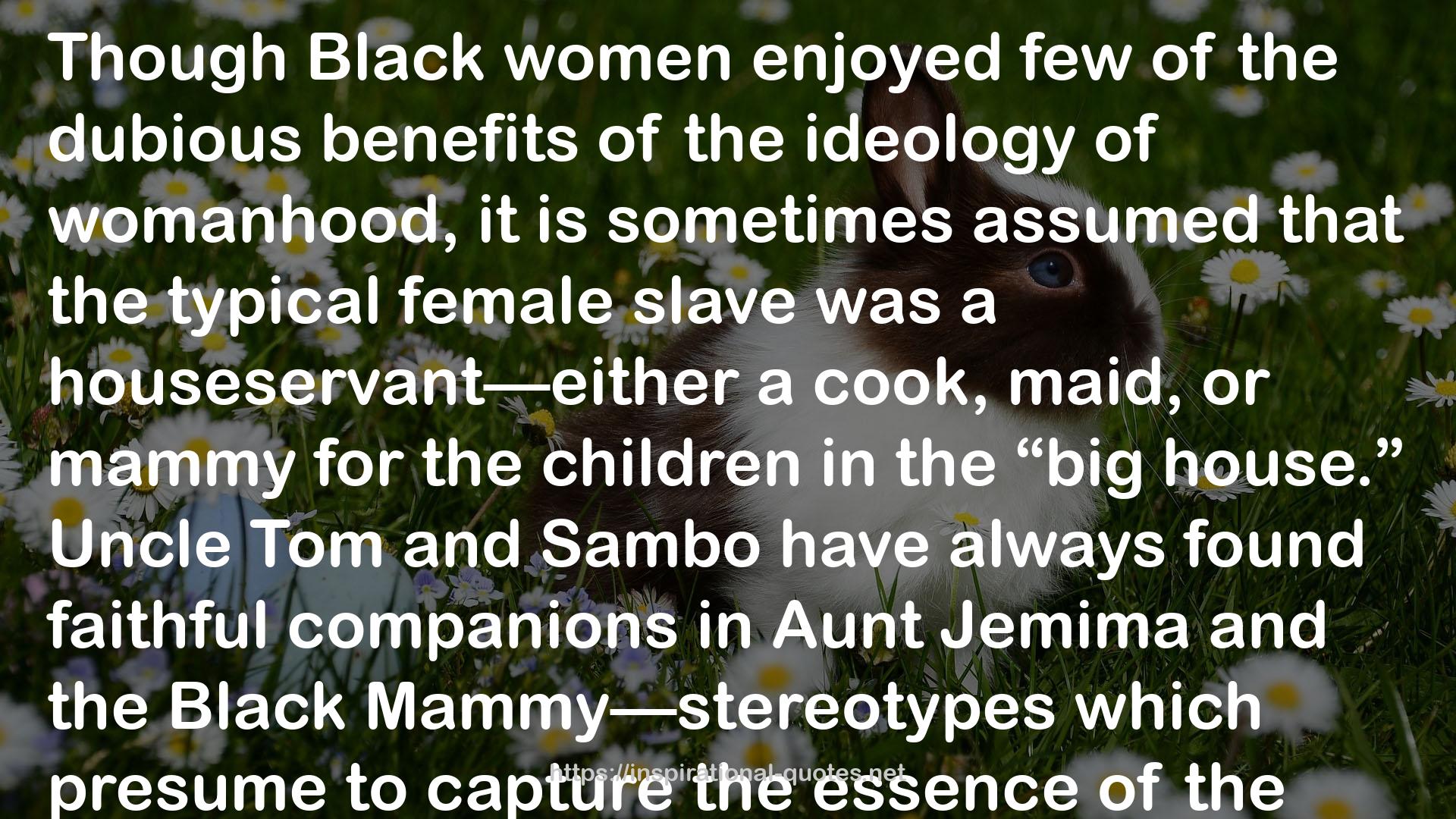" Though Black women enjoyed few of the dubious benefits of the ideology of womanhood, it is sometimes assumed that the typical female slave was a houseservant—either a cook, maid, or mammy for the children in the “big house.” Uncle Tom and Sambo have always found faithful companions in Aunt Jemima and the Black Mammy—stereotypes which presume to capture the essence of the Black woman’s role during slavery. As is so often the case, the reality is actually the diametrical opposite of the myth. Like the majority of slave men, slave women, for the most part, were field workers. While a significant proportion of border-state slaves may have been houseservants, slaves in the Deep South—the real home of the slaveocracy—were predominantly agricultural workers. Around the middle of the nineteenth century, seven out of eight slaves, men and women alike, were field workers. "
― Angela Y. Davis , Women, Race & Class
